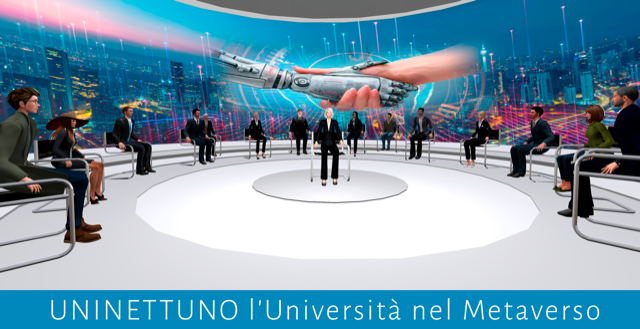
A survey conducted by the International Telematic University UNINETTUNO and Skuola.net (and covered by prestigious newspapers such as "Rai news," "Il Sole 24 ore" and "Tgcom24") shows that out of a sample of 2650 high school students, 31% of students approaching the graduation milestone are considering the choice of pursuing a "digital" profession, i.e., based on new technologies. Overall, for one in 10 respondents, this is the first option for post-diploma. A number that may not be exciting, but is actually definitely comforting when put in relation to what is happening in schools. In the various institutions, in fact, these areas continue to be guiltily put on the back seat. Only a minority of young people (18%) talked frequently about such pathways in the classroom. The largest slice (57%), on the other hand, have never approached the subject with guidance counselors or teachers, while 2% have had just a smattering.
Luckily, young people also have the opportunity to get information through other channels. They do so mainly in the circle of relatives and acquaintances, but also independently: 14% have explored the topic of "professions of the future" in the family with their friends, the same percentage (14%) have taken action independently to get more details about emerging jobs and "innovative" fields of specialization. A no-nonsense approach also confirmed by analysis of the motivations driving toward these careers: among those interested, nearly 1 in 2 aim to maximize their opportunities to find a job and advance their careers. However, there are also many young people (30%) who would do it to put their own passion to good use. For now, very few (22%) put money prospects first.
"It is worrying that, even today, so many young people are not accompanied by schools in the use of new technologies and knowledge of the digital world, effectively forcing them to go it alone. It means not having an awareness of the changes taking place. Instead, orientation and awareness are the basis from which to 'master' technology, to control it; they should be the main goals of schools," comments Prof. Maria Amata Garito, Rector of UNINETTUNO. "We try to do just that, to always experiment with new technologies - as is currently the case with the Metaverse or Virtual and Augmented Reality viewers - and then make them available to students during their education. Only in this way, in fact, can one concretely understand what it means to handle this ever-evolving dimension and to dialogue with it," she concludes.
The type of university chosen, in the minds of young people, can also make a difference. In this, the largest portion of the sample (40%) thinks that online universities are the ones that can provide better training, compared to traditional ones, to perform digital professions. In the eyes of the youngsters, in fact, they can count on a competitive advantage given by the philosophy with which they were born: for 56% they already have a cutting-edge educational model; for 22% they are accustomed to the online dimension (the basis of these professions), and for 18% because they break down physical limits and are therefore already familiar with the dynamics of these professions.
From this point of view, the International Telematic University UNINETTUNO, ranked first among online universities and ranked 23rd among the 90 Italian universities evaluated by an ANVUR survey as well as positioned within the top ten European online universities, offers students a wide range of three-year (bachelor's), second-cycle, master's and online courses within its six faculties (Cultural Heritage, Economics, Law, Engineering, Psychology and Communication Sciences).
International Telematic University UNINETTUNO Press Office
Corso Vittorio Emanuele II, 39 – Roma (Italy)
Toll-free number: 800 333 647
Tel. : +39 06 692076.70 (1)
Mail: info@uninettunouniversity.net